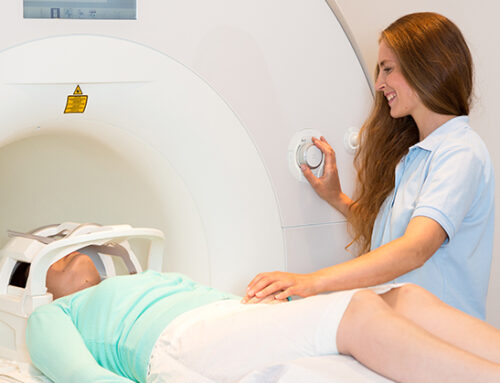When beta amyloid and tau proteins go rogue, they form the characteristic brain plaques and tangles thought to be a cause of Alzheimer’s.
But inflammation is also an early feature of the disease and strongly involved in its development.
Previous attempts to relieve inflammation in Alzheimer’s patients have not been successful, but a new study reveals early laboratory research on a novel nose spray that’s succeeding and is therefore making huge strides in halting memory decline.
Inflammation is a natural and helpful process. In response to infection and injury, inflammation is triggered for several days to allow the body to begin the healing process. But in Alzheimer’s disease—and many other conditions related to aging—the inflammation persists and becomes chronic.
Non-steroidal anti-inflammatory drugs have been used in the treatment of Alzheimer’s to relieve the chronic inflammation, but the results have been disappointing.
Scientists at Louisiana State University (LSU) and the Karolinska Institute in Sweden were reluctant to abandon targeting inflammation as a strategy, so they came up with an alternative approach.
Specialized Pro-Resolving Mediators May Hold the Key
If the brain is injured, it activates microglial cells. These are the brain’s first responders and main defense against pathogens. They also clear away toxic debris such as damaged neurons and protein clusters like beta amyloid.
But microglial cells are a double-edged sword because at the same time they set off inflammatory processes that can harm brain cells if the inflammation isn’t quickly resolved.
In Alzheimer’s and other neurodegenerative diseases, as well as various forms of brain injury, microglial activation—and the inflammation they cause— is sustained.
While the brain has anti-inflammatory pathways to help quell chronic inflammation, it also has a separate anti-inflammatory system to aid in the battle. It involves a distinct group of bioactive compounds called specialized pro-resolving mediators (SPMs) derived from polyunsaturated fatty acids like omega 3 (EPA and DHA). Members of this specialized group of inflammation fighters are called resolvins, maresins, lipoxins and protectins.
Widespread Brain Benefits
One type of neuroprotectin, called NPD1, was discovered by LSU neuroscientist Nicolas Bazan.
Previous studies by the Bazan lab show NPD1 is protective in models of stroke and retinal damage and is depleted in the memory areas of the brain in those who die of Alzheimer’s disease. Their research demonstrates NPD1 is a key signaling molecule in the complex process of resolving inflammation within the brain.
Since inflammation resolution is impaired in the brains of those with Alzheimer’s, the scientists tested if administration of SPMs in a mouse model of Alzheimer’s would resolve inflammation and reduce the cellular changes seen in Alzheimer’s disease.
Along with NPD1, four other types of SPM were also administered as they target different receptors in the brain.
Since SPMs are fragile molecules and prone to oxidation, the scientists didn’t believe taking them as an oral supplement would be effective. They could have injected them but didn’t want to use an invasive method as they were looking for something practical for use in people in the future. The solution they settled on was to administer SPMs intra-nasally—in other words, through a nose spray.
The results were very encouraging.
The researchers wrote in their paper, published in the nature journal Communications Biology in March, that SPMs “clearly resulted in beneficial effects…in terms of behavior, cognition, neuroinflammation [and] improved recognition memory…together with a dramatic decrease in microglia activation.”
Marianne Schultzberg, a senior member of the Karolinska team, is hopeful. “This productive collaboration is uncovering important aspects of early stages of Alzheimer’s disease, and the novel evolving mechanisms are promising paths for innovative therapies like the one disclosed in the current paper.”
My Takeaway
While the research on this new nose spray is early, in my opinion the mechanism of safely controlling inflammation is critical to prevent and treat Alzheimer’s disease. If scientists are able to effectively trigger the body’s natural defenses against inflammation, I believe they’ll be on to a very successful treatment for Alzheimer’s disease in no time.







